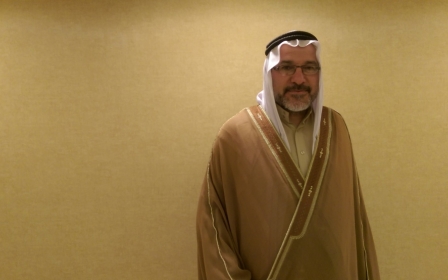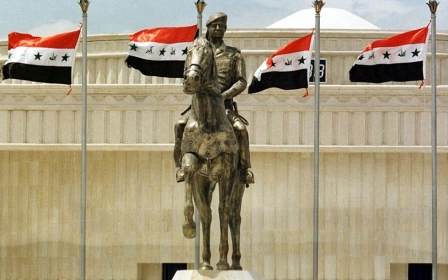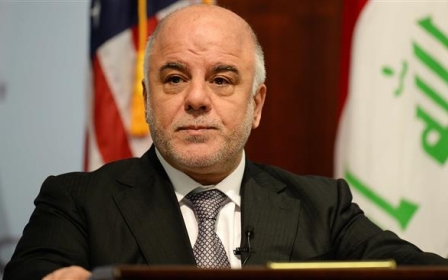'An act against cowardly violence': The cellist of Baghdad
Last week a car bomb ripped through a busy suburb in western Baghdad, killing 16 people and injuring dozens.
Like the dozens of other explosions that have hit the Iraqi capital this year, there was a lot to do after the ambulances left the scene: glass to be swept up outside the restaurant and the petrol station, burned cars to be towed away.
Added to this grim ritual though was a new custom: music.
After the explosion Karim Wasfi headed down to the blast site, set a stool among the wreckage and started to play his cello.
“The only way I see to retaliate is to be active. Music isn’t an additional element in life, something to do just when things are normal,” Wasfi, conductor of Iraq's National Symphony Orchestra, told MEE by phone as he drove around Baghdad earlier this week, hooting at other cars and greetings soldiers at various checkpoints.
Baghdad has been the target of multiple bombings this spring, many of them later claimed by Islamic State, which also periodically shells outlying areas of the city. But Wasfi felt compelled to act last week when a busy shopping street in his neighborhood, al-Mansour, was destroyed.
“There is nothing in that area that I would call a target,” he said.
“Three women and their mother burned to death because of this ugly act of violence. A man who was visiting Baghdad from Dubai for the first time in years and went to do some shopping ended up losing two family members just like that.”
Wasfi described his decision to play as “an act against cowardly violence”. A five-minute video of the impromptu concert shows a crowd slowly gathering around him to listen. At one point, a man struggles to push his wheelchair over rubble and debris to sit close to Wasfi – as he listens, he lights a cigarette and waves it in the air as if conducting the music.
The video quickly went viral, proof, Wasfi says, that people in the city are desperate for an escape from the grinding fear of violence and bombs.
“When I conduct in Baghdad, the venue is packed out. People stay after the concert for more than an hour, just to feel normal.”
There were some negative reactions to Wasfi’s decision to play the piece, Baghdad Melancholy, a semi-improvised song he composed prior to the blast.
“One man asked why I was playing music when people were in such misery. Others said I was disrespecting the souls of the dead.”
But for Wasfi, music is a powerful and active tool – it can bring people together, he said, and undermine the destructive will of militancy.
“I don’t think there is anything music cannot do,” he said.
As if to prove his point, Wasfi was joined later by a group of Iraqis, young and old, who lit more than 300 candles at the blast site and laid white roses on the dusty pavement.
“People are interacting. They don’t want to accept violence and insanity any more.”
New MEE newsletter: Jerusalem Dispatch
Sign up to get the latest insights and analysis on Israel-Palestine, alongside Turkey Unpacked and other MEE newsletters
Middle East Eye delivers independent and unrivalled coverage and analysis of the Middle East, North Africa and beyond. To learn more about republishing this content and the associated fees, please fill out this form. More about MEE can be found here.




